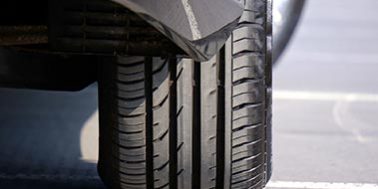Many of us may be planning holidays at home once again this summer, but regardless of whether you are planning a long journey or a trip to the supermarket, checking your tyres is important to ensure your vehicle complies to road safety laws and all passengers are safe. Wherever your final destination may be, it is recommended that you carry out a few checks on your tyres before you set off. This will help you avoid needing to change a tyre whilst on the road, or even worse, a complete blowout. For the safety of everyone in the vehicle, as well as other road users, you may want to take the following steps.
Checking tyre condition
- Your first step should be to give each of your tyres a look over to ensure there is no visible damage. You should be looking out for cuts, bald spots or bulges whilst also looking out for anything lodged in the rubber such as nails or rocks.
Checking tyre pressure
- Before you begin your journey, you should check the tyre pressure of each to ensure that they are all inflated to the recommended level. This level will depend on which type of vehicle you have and can be found in the owner’s manual. You should also check your spare tyre if applicable.
- You will need to use a pressure gauge which you can purchase online or locate at your local petrol station.
- Unscrew the valve cap and attach the pressure gauge to receive a reading.
- If your tyre pressure is too low, you will need to inflate to the recommended level. Or if the pressure is too high, let some air out till it is at optimum pressure.
Checking tyre tread depth
Your tyre tread is essential to keeping your car gripped to the road effectively in both dry and wet conditions, so if the tread has been worn down too much, you may be at risk of sliding and causing a collision. Tyre tread can be worn down by driving with heavy loads, cornering at high speeds, using the roads on incorrect tyre pressures or operating the vehicle with damaged suspension.
You can carry out the 20p test to ensure your tread depth is at the legal level. If the outer band of the coin disappears when you place it between the tyre grooves, then the tread depth is acceptable. You should try this in at least 3 different spots of the tyre.
The UK and Europe legal minimum tyre tread is 1.6mm, but some manufacturers recommend 3mm minimum. If your tread depth is below this, you are at risk of a £2500 fine and three points on your licence for each tyre, meaning you could be banned from driving if all tyres don’t reach the minimum.
If your tyres are visibly damaged or worn down to the point that they are no longer legal, you will need to have replacement tyres fitted. Here at Double Dee Autos, we can fit replacement tyres and get you back on the road as quickly as possible. For tyre replacements, general car repairs or to arrange a service, be sure to get in contact with us. Call 020 8460 3040 or email us at ddautosbromley@outlook.com to book your car in with us today.

